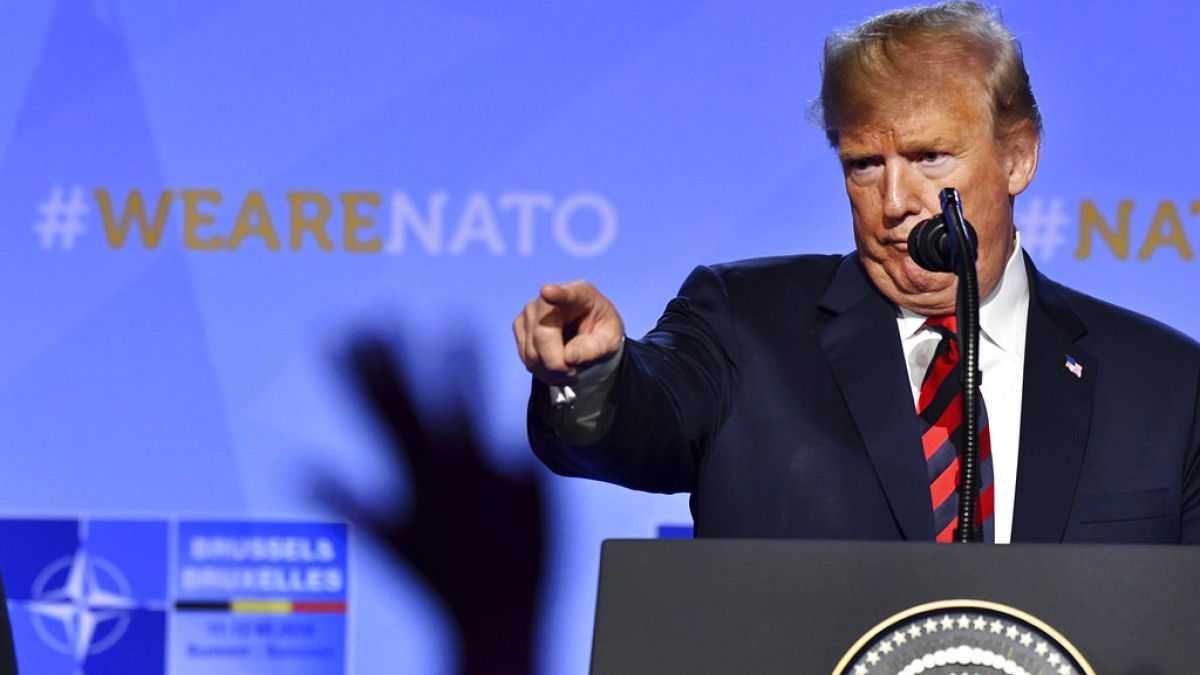Europe’s offer to Syria
What the bloc needs to recognize is that Syria’s fate is of key strategic interest and that it has a potentially fleeting opportunity to support positive change.
Julien Barnes-Dacey is the Middle East & North Africa program director at the European Council on Foreign Relations.
It has only been two weeks since Syria’s dictator Bashar Assad fled the scene, but Europe is already moving too slowly.
The fall of Assad’s regime offers Europe a huge strategic opportunity — including the possible voluntary return of many Syrian refugees. But typical European hesitation is kicking in. And while some of the bloc’s diplomats are traveling to Damascus, European Commission Vice President Kaja Kallas has already stated that substantial support for Syria will remain dependent on progress on the ground.
What Europe needs to recognize is that Syria’s fate, sitting at the heart of the Mediterranean, is of key strategic interest and that the bloc has a potentially fleeting opportunity to support positive change.
At a time when internal divisions are wreaking havoc on coherent European foreign policymaking, Syria now offers a rare chance to forge unity and to get moving.
Europe needs to make Syria a bold offer and make it fast. It needs to put together a significant package to incentivize the country’s new military ruler Hay’at Tahrir al-Sham (HTS) — a group formerly linked to al Qaeda — to continue evolving toward moderation, inclusivity and stabilization.

We shouldn’t be naive about the challenges and limits of our own influence. Conditionality is the right approach here, but if Europe truly wants to help shape developments and make Syria a place its exiles can safely return to, it needs to shape an emphatic and preemptive offer.
This will need to comprise intensive political engagement with HTS, quick sanctions relief to help alleviate immediate pressures that could derail any transition, as well as a significant economic package — if a meaningful transition is secured.
Moreover, for those concerned that Russia is now trying to build ties with the post-Assad government, such an offer would be the most effective way to showcase Europe’s added value and present itself as the partner of choice — rather than issuing ultimatums saying support will be dependent on a full Russian withdrawal.
Europe should rally behind the reality that a successful transition will not only help Syrians but is the only means of addressing the full range of its interests — such as cementing democratic governance, securing sustainable conditions to allow significant Syrian refugee returns, and diluting Iranian and Russian influence in the country.
If the transition fails, none of these objectives will be met and the cost will be spiraling conflict. It will end the prospect of refugee returns and ensure Syria remains a hot spot for destabilizing external interventions.
Of course, no one should be under any illusion as to the immense challenges facing Syria’s transition: HTS could revert back to its extremist roots and seek absolute control; factional fighting could break out between armed groups; a Turkish attack on Syrian Kurds could give the Islamic State group space to regroup; and the country’s continued socioeconomic collapse, with 70 percent of the population now requiring humanitarian assistance, could turn Syria into a permanently failed state.

Europe needs to work to help prevent these outcomes, seizing the signs indicating a positive transition is possible. These include the initial steps taken by HTS, such as reaching out to minorities, protecting state institutions and talking about elections. Many in Europe question HTS’s sincerity, but we need to test it.
Furthermore, Europe can lean on the deep expertise built up by Syrian civil society during 14 years of war, as well as the population’s utter exhaustion with conflict. Both could play a powerful role in renewing the country’s governance and pressuring armed actors toward a power-sharing agreement. Success depends on this being a Syrian-led process, and European officials should not get involved in the transition’s micro-dynamics.
However, the bloc can still play an important role.
Most immediately, this means stepping up direct engagement with HTS, despite the group’s current sanctions listing. And quick economic sanctions relief will also be critical to help address urgent stabilization needs. Underlying this, however, Europe needs to offer a big strategic vision to incentivize the desired outcome. The bloc should lay out a significant political and economic partnership, one that includes substantial reconstruction support, as well as lobbying the incoming administration of President-elect Donald Trump to drop United States sanctions, if a genuinely inclusive new government is formed.
Simply put, Europe needs to go big and it needs to do so while the window of opportunity remains open — not just delay until the successful implementation of a transition that risks never arriving.
And throughout, it should make very clear that its support will be curtailed, and that HTS will remain under sanctions, if the country doesn’t move toward real inclusivity.
What's Your Reaction?




















































